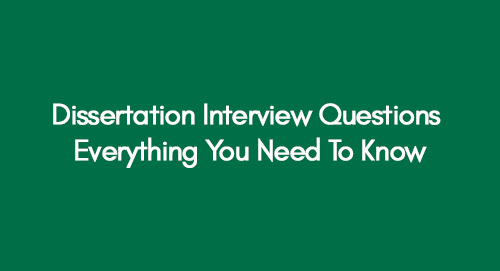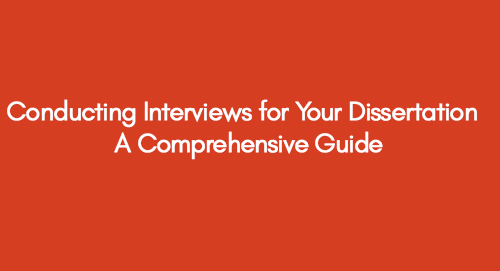
Reflective Writing Examples
May 22, 2023
How to Improve Writing Skills in English| A Beginner’s Guide
May 23, 2023Abstract writing is the art of summarising extensive research. It is a concise report that provides an overview of the research aim, methodology, conclusion, and results to give the reader a sense of what the paper entails.
Review Our Quality Dissertation Examples
Get 3+ Free Dissertation Topics within 24 Hours
But what makes research writing such a unique and challenging art form? How does one distil complex ideas into a few short sentences?
In this session, we'll talk about the secrets of crafting a compelling abstract, including what works and what doesn't.
With this guide, you can write a successful dissertation in no time! Also, you can visit our dissertation examples below:
Example 1: Effects of Virus on Hospitality and Tourism
Example 2: Impact of Leadership Style on Professional Satisfaction of Nurses: A Case Study
Note: Below is a complete guide with some more examples and tips for you to ace the skill of dissertation writing.
When Should You Write an Abstract?
Abstract meaning in research is the overarching concept or idea that is found in a study or research project. A maximum of 200-300 words should be included in the abstract. Well, in most cases, you'll find yourself needing to include an abstract when:
- Completing a thesis or dissertation: When you're wrapping up your academic masterpiece, an abstract is typically expected to provide a concise overview of your entire work.
- Submitting a research paper to an academic journal: Journals often require an abstract to give readers a glimpse of your study's purpose, methods, and key findings, helping them decide whether to dive into the full paper.
- Writing a book or research proposal: If you're putting together a book or a proposal for a research project, an abstract becomes a valuable tool for conveying the essence of your work and capturing the interest of potential readers or sponsors.
- Applying for research grants: Funding bodies frequently ask for abstracts as part of grant applications. This allows them to quickly grasp your research's significance and potential impact, aiding their decision-making process.
Here's a helpful tip: It's usually best to write your abstract towards the end, just before the proofreading stage. By then, you'll have completed your work, making it easier to summarise its key points accurately. When crafting your abstract, keep these points in mind:
Step 1: Writing Abstract’s Introduction
When it comes to writing the introduction of an abstract, it is crucial to capture the attention of readers and provide them with a clear understanding of the context and importance of your research. Here is an example of abstract in research clears the way like:
- Use brief context while writing an abstract, and avoid detailed background
- Define a technical term, don't confuse the readers
- Use present or past simple sentences and avoid referring to future actions or plans.
How to Write a Dissertation Abstract?
Step 2: Writing Method for Abstract in Research Paper
The most important focus for abstract writing is the method of writing that gives you. A methodology is always a smart and straightforward description of what you are going to say.
Tips to follow the best writing methodology
- Use the simple past sentence
- It refers to the completed action
Ensure you don't write complex ethical statements that confuse the reader. Provide them with a quick overview of the methodology's overall approach.
Methodology Dissertation Example
Step 3: Write the Abstract’s Results
Here's a simple result research paper abstract example that summarises the idea of result writing.
The results of your research may not all be included here, depending on how long and complex it is. Try to highlight only the most significant findings that will help the reader understand your conclusions.
How to Write a Results Section. Tips and best practices
Step 4: Write Abstract’s Discussion
In the end, you are at the point where you are going to tell your reader what you have driven from the research.
Explain in simple terms why there are limitations to your research and how they may have impacted the results. Always be honest and transparent when discussing limitations. Finally, suggest ways that the limitations could be addressed in future research.
The Do's of Abstract Writing
- Clearly State the Research Objective
Begin your abstract by clearly stating the purpose of your research. Specify what you aimed to achieve or investigate in your study. This provides readers with a clear understanding of the focus of your research.
- Include Relevant Background Information
Provide a brief context for your research by highlighting the existing knowledge or gaps in the field. Explain why your study is important and how it contributes to the existing body of knowledge.
- Concise and Structured Approach
Keep your abstract concise and avoid unnecessary details. Use clear and straightforward language to communicate your ideas effectively. Structure your abstract into sections that correspond to the main components of your research, such as introduction, methods, results, and conclusion.
- Highlight Key Findings
Summarise the most important findings or results of your study. Emphasise any significant discoveries, trends, or patterns that emerged from your research. However, be careful not to include excessive detail or data.
- Communicate the Significance of Your Research
Explain the broader implications and potential applications of your findings. Describe how your research contributes to the field and its relevance to other studies or practical applications.
- Use Active Voice and Present Tense
Write your abstract using active voice and present tense to make it more engaging and dynamic. This helps create a sense of immediacy and relevance for readers.
The Don'ts of Abstract Writing
- Avoid Excessive Technical Jargon
While it is important to convey the technical aspects of your research, be mindful of using excessive jargon. Your abstract should be accessible to a wider audience, including readers who may not be experts in your field. Use clear and concise language that can be easily understood.
- Don't Provide Unnecessary Detail
Avoid including excessive experimental details, raw data, or statistical analyses in your abstract. Focus on summarising the key aspects of your study instead of overwhelming readers with technical information.
- Steer Clear of Subjective Statements
Abstracts should be objective and unbiased. Avoid using subjective statements, personal opinions, or speculation. Stick to presenting factual information and drawing conclusions based on your research findings.
- Don't Exceed the Word Limit
Most journals or conferences provide a specific word limit for abstracts. Ensure that you stay within the prescribed limit to meet the submission requirements. Exceeding the word limit may result in the organisers rejecting or editing your abstract.
- Avoid Ambiguity and Vague Language
Avoid using ambiguous or vague language that can confuse readers. Instead, focus on presenting your research findings and their implications in a straightforward manner.
Get 3+ Free Dissertation Topics within 24 hours?



























